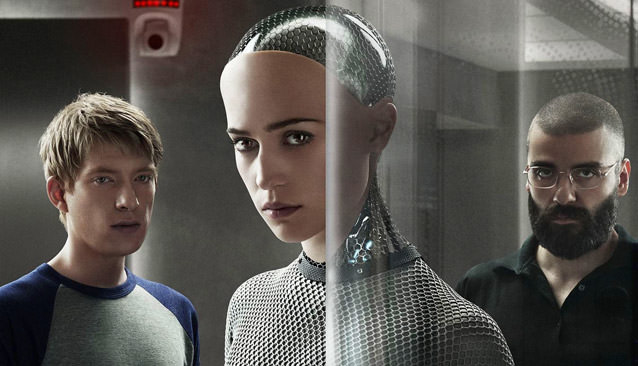Last week, I finally watched the 2015 sci-fi and artificial intelligence (AI)-themed movie, Ex Machina. Providing viewers with an in-depth look at the possibilities of AI in a not-so-far future, the film centres around the relationship between a young programmer named Caleb and a seductive robot, Ava. Caleb is mandated to administer the “Turing test”—essentially testing whether Ava can fool a human into thinking that she is not a machine. Aside from Ava’s superior looks and intelligence, and Caleb’s fatal attraction to both, the movie highlights an inevitable issue in the AI debate—the fine line between artificial intelligence and human intelligence, and what happens when it is blurred.
While most researchers seem confident in the possibility of turning a machine into a human, the question as to how to keep humans from turning into machines doesn’t seem to have crossed many minds. Yet, increasingly, the virtual, emotionally-detached, efficiency-driven way of machines has come to govern our society and relationships. Often, this is more harmful than helpful.
In the incessant technological race to simulate humans, AI and human-looking androids have also taken a new, darker purpose as sex robots. These are app-operated machines with the outward physique of a human, whose ultimate goal is not to beat you at chess, but to please you in bed. With a customizable appearance, they can go on for hours. They may very well be the ideal sexual partner for the aloof, feelings-apprehensive, self-centered lover of the 21st century.
This use of AI most likely—and understandably—makes many uncomfortable. The thought of a robot as a sexual partner to a human seems unnatural, awkward, and perhaps even unethical. But, while treating an AI creation as just a physical shell to satisfy our most lustful desires sounds undesirably creepy, it simultaneously reflects how some of us have come to treat our most intimate relationships.
In today’s “hookup culture,” which allows only virtual emotional contact and restricted physical interaction, and where it seems we sometimes meet one another with the sole purpose of fulfilling biological impulses, the parallel to sex robots is not so far-fetched. In our quest to remove ourselves from emotional attachments, we’ve come to treat each other like robots in our intimate interactions. The online dating game exacerbates this trend; from apps, to social media, to Craigslist ads, it’s never been easier to meet people without any real-world contact, and never truly engage with them. It’s also never been easier to dehumanize the person on the other side of the phone screen: From a specific body type, hair or eye colour, ethnicity, to height, we choose and judge the person as if they’re not real. Akin to a virtual machine, the being on the other end is mainly there to fulfill an idealized version of our desires.
It is no surprise, then, that in Ex Machina, Ava eventually passes the test, and Caleb comes to believe that the AI does love him, subsequently falling for her. Even today, sexbots on virtual chat websites are hardly anything worth raising an eyebrow over; fake, machine-generated dating profiles are ubiquitous, because increasingly they’re not so different from our human interactions.
Perhaps it’s the machines that have become a lot like us: They have emotional intelligence, can take on our physical form, and may very soon become smarter than us. But, it’s not far-fetched to think that it’s our interactions—which are often detached and surface-level—that truly make AI objects seem so human. If we treat each other like robots, it’s no wonder that we then struggle to tell both apart.
Google’s Director of Engineering Ray Kurzweil has predicted that in 2029 computers will reach human-level intelligence. Ironically, tech entrepreneur Elon Musk has argued that to save humanity from irrelevance, humans should be turned into cyborgs, so that they can become the superior machine of the two.
The advancement of AI and the automation of our society are inevitable and have already begun. Soon, human-looking machines will be walking among us, which is why it’s all the more important to remember that we are humans—not machines—and must treat each other as such.









